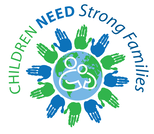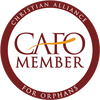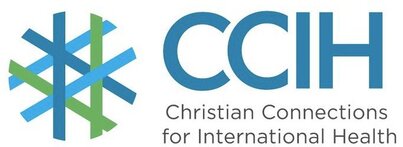Helping Children Worldwide |
We are two hearts beating as one, two hands with one heart, reaching across the ocean for the love of God's children.
Bishop John K. Yambasu, Child Reintegration Centre Co-Founder |
A story of radical faith and radical courage.
A mission born out of war.
A ministry guided by grace.
After ten years of brutal civil war destroyed families and communities, thousands of children were separated from their parents, some living in the streets and others hiding in the bush, alone and struggling to survive in Sierra Leone, West Africa. In the fall of 1999, Reverend John K. Yambasu was working as a children’s ministry missionary for the United Methodist Church in his own country of Sierra Leone. He traveled to the US with a fervent hope of finding help for children who were orphaned or separated from their families. He reached out to his friend, Rev. Tom Berlin, who invited him to speak to his congregation in the greater D.C. area about dedicating a special Christmas Eve offering to help children they would most likely never meet. Children who were suffering far away in the city of Bo, Sierra Leone, West Africa.
After Rev. Yambasu described his vision of a feeding program for children begging in the streets and sleeping under market tables in the City of Bo, to the congregation of Floris United Methodist Church in Northern Virginia, he received such an outpouring of generous support that he and Rev. Berlin realized God had bigger plans, and they courageously and faithfully answered the call to do more. With Floris’ ongoing annual support, the street feeding program was transformed into a residential home for children. Children were rescued from the streets and the first forty children came to live at the Child Rescue Centre, finding a safe place to lay their heads at night, where they would be fed, clothed and educated.
And he took a child and put him in the midst of them, and taking him in his arms, he said to them, “Whoever receives one such child in my name receives me, and whoever receives me, receives not me but him who sent me.”
Mark 9:36-37
After Rev. Yambasu described his vision of a feeding program for children begging in the streets and sleeping under market tables in the City of Bo, to the congregation of Floris United Methodist Church in Northern Virginia, he received such an outpouring of generous support that he and Rev. Berlin realized God had bigger plans, and they courageously and faithfully answered the call to do more. With Floris’ ongoing annual support, the street feeding program was transformed into a residential home for children. Children were rescued from the streets and the first forty children came to live at the Child Rescue Centre, finding a safe place to lay their heads at night, where they would be fed, clothed and educated.
And he took a child and put him in the midst of them, and taking him in his arms, he said to them, “Whoever receives one such child in my name receives me, and whoever receives me, receives not me but him who sent me.”
Mark 9:36-37
Child Rescue to Child Reintegration
From children in need of rescue to families in need of support.
The CRC has been leading the way since July 4, 2000.
The war finally came to an end, but the effect of horrendous acts of violence and destruction in the name of political gain remain, even to this day.
In a part of the world where resources are scare and poverty endemic, war had made everything far, far worse. War destroyed what gains had been made over the past fifty years. Families had lost homes, children had lost parents. Conflict had rendered communities devastated and isolated, the railway tracks had been ripped up, hospitals, churches, mosques and schools destroyed. The already fragile education, health and social welfare systems were shattered. The need for assistance was extreme, and the government of Sierra Leone was not able to provide the help that was needed. Mission teams from Floris dispatched to Sierra Leone to help. The more trips they took to Bo, the more they felt called to help. They learned that the people of Sierra Leone fell among the highest poverty rates, lowest adult literacy rates, highest infant death rates, highest under 5 deaths, and highest maternal mortality rates in the world. They felt blessed by God, and called by their faith to act. They knew, the greater their generosity, the more the Child Rescue Centre could do for the impoverished children of Bo. But this was only one congregation, and as the work of the Child Rescue Centre expanded, so did the need for support. In 2003, Floris reached out to other churches, asking them to form a partnership, and formed a nonprofit organization, Helping Children Worldwide, to capture the leadership’s vision to provide financial and strategic support to the Child Rescue Centre and help children in circumstances like the children they had encountered in Bo. The board of the new nonprofit begin immediately building a health facility to serve children in the impoverished community, and seeking other, better ways they could serve, including creating a local coalition to serve impoverished children in the U.S. (That charity continues to this date, and is still supported by Floris, but was “spun off” and is no longer affiliated with Helping Children Worldwide.)
In short order, the Child Rescue Centre (CRC) outgrew the building where it began, serving now over 75 children in residence. The CRC began providing tuition and school supplies to impoverished children whose parents were unable to adequately feed or house their children and also send them to school. By 2005, there were as many or more children living outside the residence who were enrolled in the CRC’s child and family support programs, receiving financial assistance, food, healthcare tuition, school fees, uniforms, shoes and school supplies.
The residential program was never all that John Yambasu or his friends at Helping Children Worldwide had envisioned. From those first 40 children, the CRC grew to include a spectrum of programs serving more than 600 extremely vulnerable children and youth, helping them escape the vicious cycle of poverty and develop their full potential. Many of the children who had been in residence at CRC had attended college with aid of scholarships from Helping Children Worldwide (HCW) and returned as professionals to run the institutions that had been originally formed to help them. Beginning in 2016, they used their experience to transform the work and improve it. In turn, they strengthened and improved the partnership with HCW. By 2018, all of the children in residence were living in families, most of them reunited with their own parents, siblings and family. Because of the deep commitment to the welfare of the children in residence, the partnership worked together to develop a mindful reintegration process that would result in a sustainable reintegration for the entire family, in addition to addressing the immediate child welfare needs of the children who would be reintegrated.
Once the children were all living in families, some might think the work of the CRC was complete. Some actually suggested as much. But the work did not end there, as the goal was to end the cycle of child poverty, permanently, and to do so by ensuring every child they enrolled in their programs lived with a sense of belonging in safe, loving, and strong families. The CRC family support program in the community was their original service model. With this in mind, the partnership worked to increase staff professionalism and capacity to provide the services needed to support strong families, focusing on the uniquely developed family strengthening services. In 2020, the Child Reintegration Centre was born from the new vision of the CRC leadership, and not only did CRC transform its work to focus on sustaining families, healing and preventing family separation, it began teaching others about their successes.
Read more about the work of the CRC and HCW partnership in child welfare here.
Today, churches from Virginia, Texas, South Carolina, Ohio, Massachusetts, Missouri, New York, and Kansas support the work of Helping Children Worldwide. some in full partnership, and they join us in passionately advocating for the newly renamed Child Reintegration Centre and Mercy UMC Hospital, and for children and families affected by extreme poverty.
And let us not grow weary of doing good, for in due season we will reap, if we do not give up.
Galatians 6:9
In a part of the world where resources are scare and poverty endemic, war had made everything far, far worse. War destroyed what gains had been made over the past fifty years. Families had lost homes, children had lost parents. Conflict had rendered communities devastated and isolated, the railway tracks had been ripped up, hospitals, churches, mosques and schools destroyed. The already fragile education, health and social welfare systems were shattered. The need for assistance was extreme, and the government of Sierra Leone was not able to provide the help that was needed. Mission teams from Floris dispatched to Sierra Leone to help. The more trips they took to Bo, the more they felt called to help. They learned that the people of Sierra Leone fell among the highest poverty rates, lowest adult literacy rates, highest infant death rates, highest under 5 deaths, and highest maternal mortality rates in the world. They felt blessed by God, and called by their faith to act. They knew, the greater their generosity, the more the Child Rescue Centre could do for the impoverished children of Bo. But this was only one congregation, and as the work of the Child Rescue Centre expanded, so did the need for support. In 2003, Floris reached out to other churches, asking them to form a partnership, and formed a nonprofit organization, Helping Children Worldwide, to capture the leadership’s vision to provide financial and strategic support to the Child Rescue Centre and help children in circumstances like the children they had encountered in Bo. The board of the new nonprofit begin immediately building a health facility to serve children in the impoverished community, and seeking other, better ways they could serve, including creating a local coalition to serve impoverished children in the U.S. (That charity continues to this date, and is still supported by Floris, but was “spun off” and is no longer affiliated with Helping Children Worldwide.)
In short order, the Child Rescue Centre (CRC) outgrew the building where it began, serving now over 75 children in residence. The CRC began providing tuition and school supplies to impoverished children whose parents were unable to adequately feed or house their children and also send them to school. By 2005, there were as many or more children living outside the residence who were enrolled in the CRC’s child and family support programs, receiving financial assistance, food, healthcare tuition, school fees, uniforms, shoes and school supplies.
The residential program was never all that John Yambasu or his friends at Helping Children Worldwide had envisioned. From those first 40 children, the CRC grew to include a spectrum of programs serving more than 600 extremely vulnerable children and youth, helping them escape the vicious cycle of poverty and develop their full potential. Many of the children who had been in residence at CRC had attended college with aid of scholarships from Helping Children Worldwide (HCW) and returned as professionals to run the institutions that had been originally formed to help them. Beginning in 2016, they used their experience to transform the work and improve it. In turn, they strengthened and improved the partnership with HCW. By 2018, all of the children in residence were living in families, most of them reunited with their own parents, siblings and family. Because of the deep commitment to the welfare of the children in residence, the partnership worked together to develop a mindful reintegration process that would result in a sustainable reintegration for the entire family, in addition to addressing the immediate child welfare needs of the children who would be reintegrated.
Once the children were all living in families, some might think the work of the CRC was complete. Some actually suggested as much. But the work did not end there, as the goal was to end the cycle of child poverty, permanently, and to do so by ensuring every child they enrolled in their programs lived with a sense of belonging in safe, loving, and strong families. The CRC family support program in the community was their original service model. With this in mind, the partnership worked to increase staff professionalism and capacity to provide the services needed to support strong families, focusing on the uniquely developed family strengthening services. In 2020, the Child Reintegration Centre was born from the new vision of the CRC leadership, and not only did CRC transform its work to focus on sustaining families, healing and preventing family separation, it began teaching others about their successes.
Read more about the work of the CRC and HCW partnership in child welfare here.
Today, churches from Virginia, Texas, South Carolina, Ohio, Massachusetts, Missouri, New York, and Kansas support the work of Helping Children Worldwide. some in full partnership, and they join us in passionately advocating for the newly renamed Child Reintegration Centre and Mercy UMC Hospital, and for children and families affected by extreme poverty.
And let us not grow weary of doing good, for in due season we will reap, if we do not give up.
Galatians 6:9
Mercy Hospital and Together for Global Health
As the mission of the Child Rescue Centre expanded, and the staff and volunteers of Helping Children Worldwide became increasingly aware of the need for medical care in Sierra Leone, the work in global health became a primary means to serving the vision of helping children. In 2007, Mercy Hospital opened its doors to provide compassionate care to the people of Bo, regardless of their ability to pay for treatment. Today, Mercy Hospital provides excellent health care services to more than 10,000 patients each year. Mercy Hospital supports community health initiatives including malaria, HIV/AIDS diagnosis and treatment, pre- and post-natal care, and child nutrition, with a special focus on maternal and infant survival.
HCW has been supporting the growth and development of Mercy UMC Hospital since its inception, transforming a small clinic into a regional hub health center. That center provides patients with access to surgical, in-patient, critical care, rehabilitation, HIV, and outpatient services, including pharmaceutical, diagnostic services, clinical and medial research laboratories, medical treatment and vaccination, tropical disease and nutrition services to combat infant and child malnourishment and mortality, and prenatal and delivery services to combat maternal/infant mortalities during pregnancy and birth. Moreover, Mercy has steadfastly stayed true to its initiating principles, to provide care regardless of patient ability to pay, to provide the best care possible regardless of resource limitations, to serve the destitute, and to remain open to provide services despite environmental threats and hazards, such as contagion and conflict. Mercy UMC Hospital had no fatalities due to Ebola or CoVid 19 and never shut its doors during either epidemic.
In 2020, the CoVid 19 pandemic forced HCW into a remote support role. In that environment, we did the opposite of what might be expected. We expanded, rather than contracted our support. Because we were not able to send teams to directly train or provide health services, we began to envision ways to increase our commitment to health missions and ministries in a way that linked resources to needs even when we could not be there. Our overall shift to empowerment and local ownership of solutions means we are empowering local communities to provide a continuity of health services to the impoverished people who live there.
That was the genesis for Together for Global Health. Together for Global Health is a coalition of service providers, medical professionals, and non-profit organizations participating in a collaborative network focused on increasing the capacity of local providers and health systems. Together for Global Health has taken HCW beyond Mercy Hospital to supporting the entire UMC health system in Sierra Leone, and linking clinics in impoverished communities in rural Sierra Leone to the regional hub of Mercy. And, with that same vision as the lens for our future work, Together for Global Health has taken us beyond Bo, and even beyond Sierra Leone, to working with other communities and countries and the NGOs supporting them, to generate a network that will impact the quality of available health services to children like the children we have encountered in Bo, wherever they live.
You can read more about Mercy and our partnership for Global Health here.
HCW has been supporting the growth and development of Mercy UMC Hospital since its inception, transforming a small clinic into a regional hub health center. That center provides patients with access to surgical, in-patient, critical care, rehabilitation, HIV, and outpatient services, including pharmaceutical, diagnostic services, clinical and medial research laboratories, medical treatment and vaccination, tropical disease and nutrition services to combat infant and child malnourishment and mortality, and prenatal and delivery services to combat maternal/infant mortalities during pregnancy and birth. Moreover, Mercy has steadfastly stayed true to its initiating principles, to provide care regardless of patient ability to pay, to provide the best care possible regardless of resource limitations, to serve the destitute, and to remain open to provide services despite environmental threats and hazards, such as contagion and conflict. Mercy UMC Hospital had no fatalities due to Ebola or CoVid 19 and never shut its doors during either epidemic.
In 2020, the CoVid 19 pandemic forced HCW into a remote support role. In that environment, we did the opposite of what might be expected. We expanded, rather than contracted our support. Because we were not able to send teams to directly train or provide health services, we began to envision ways to increase our commitment to health missions and ministries in a way that linked resources to needs even when we could not be there. Our overall shift to empowerment and local ownership of solutions means we are empowering local communities to provide a continuity of health services to the impoverished people who live there.
That was the genesis for Together for Global Health. Together for Global Health is a coalition of service providers, medical professionals, and non-profit organizations participating in a collaborative network focused on increasing the capacity of local providers and health systems. Together for Global Health has taken HCW beyond Mercy Hospital to supporting the entire UMC health system in Sierra Leone, and linking clinics in impoverished communities in rural Sierra Leone to the regional hub of Mercy. And, with that same vision as the lens for our future work, Together for Global Health has taken us beyond Bo, and even beyond Sierra Leone, to working with other communities and countries and the NGOs supporting them, to generate a network that will impact the quality of available health services to children like the children we have encountered in Bo, wherever they live.
You can read more about Mercy and our partnership for Global Health here.
Community Economic Empowerment
In 2018, we challenged the Helping Children Worldwide community of supporters, mission team leaders, partner churches, and partner programs to consider taking our work into rural Sierra Leone, where the level of poverty and lack of resources is the greatest. We began the Village Partnership program with the commitment of Ebenezer UMC in Stafford, VA., to support the vision as part of their vision. We have been blessed with a Village Church Partner, a Village Individual Partner, and several church project partners to date, and Village Partnership has engaged in basic infrastructure improvement programs in sanitation, water, education, health and family strengthening in four villages, with three of those villages entering into MOUs to develop enterprise ventures to sustain the improvements into the future.
Read about the work of HCW in addressing child poverty through a Village Partnership for Community Empowerment here.
Read about the work of HCW in addressing child poverty through a Village Partnership for Community Empowerment here.






